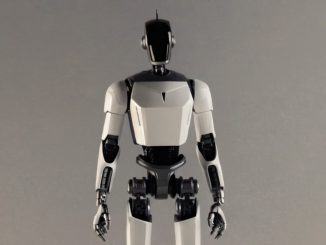Nick Bostrom says we are close to AGI and we could be only a year or two away from the technological singularity, where AI improves itself so fast that there is an intelligence explosion pic.twitter.com/B6t2s9OGoJ
— Tsarathustra (@tsarnick) August 6, 2024
Nick Bostrom, a renowned philosopher, author, and artificial intelligence (AI) expert, recently shared his insights on the accelerating development of AI in an interview on Tom Bilyeu’s YouTube channel.
Bostrom’s comments paint a picture of a future where Artificial General Intelligence (AGI) may be much closer than many realize, potentially leading to an “intelligence explosion” and technological singularity.
Bostrom expressed his belief that the timeline for achieving AGI has significantly shortened.
“I do feel AI timelines appear relatively short from this point on. We are really far along the path towards AGI already,” he stated. This assessment is based on the rapid advancements in AI capabilities that have occurred in recent years.
The philosopher highlighted how current AI systems can perform tasks that, just two decades ago, many would have considered hallmarks of AGI. These include engaging in human-like conversations and writing code at the level of an entry-level programmer.
Such abilities, Bostrom suggests, indicate that we are approaching a critical juncture in AI development.
“I feel there are not that many of these steps left before you have AI that can do all kinds of AI research better than humans can do,” Bostrom warned. This scenario, he argues, could trigger an “intelligence explosion.”
In this theoretical situation, AI systems capable of improving themselves would lead to a rapid feedback loop of ever-increasing intelligence.
Bostrom describes this potential outcome as a “singularity,” where each subsequent improvement in AI capabilities strengthens the force driving further advancements. This process would occur at “digital timescales,” potentially far outpacing human ability to understand or control it.
Perhaps most startlingly, Bostrom suggests that the timeframe for such developments could be remarkably short.
“Exactly how many years that is away is hard to tell, but I think we are no longer in a position where we can be confident that it couldn’t happen, even within some very short period of time, like a year or two,” he cautioned.
These predictions, including the one where long-term investments, such as college degrees and PhD programs, may not be worthwhile due to the rapidly accelerating timelines of the AI revolution, raise profound questions about the future of human society, the nature of intelligence, and our preparedness for a world where AI potentially surpasses human capabilities across all domains.
Bostrom’s warnings underscore the urgent need for careful consideration of the ethical, societal, and existential implications of advanced AI systems.
As AI continues to evolve at a breakneck pace, Bostrom’s insights serve as a call to action for policymakers, researchers, and the public to engage in serious discussions about how to navigate the challenges and opportunities presented by the potential arrival of AGI and beyond.
- Bulenox: Get 45% to 91% OFF ... Use Discount Code: UNO
- Risk Our Money Not Yours | Get 50% to 90% OFF ... Use Discount Code: MMBVBKSM
Disclaimer: This page contains affiliate links. If you choose to make a purchase after clicking a link, we may receive a commission at no additional cost to you. Thank you for your support!





Leave a Reply